Water in the West bridges the gap between research and practice to create and promote effective solutions for more sustainable water management in the American West.
Latest News & Insights
Sarah Fletcher calls attention to the growing issue of water affordability as her study exposes how many households struggle to pay water bills.
Stanford economist Paul Milgrom won a Nobel Prize in part for his role in enabling today’s mobile world. Now he’s tackling a different 21st century challenge: water scarcity.
Felicia Marcus applauds digitizing water rights as the system as it would help "implement the system and institute fairness."
Video
Video
Whiplash Weather: Lessons from California’s Deadly 2023 Storms
January 26, 2023
Whiplash Weather: Lessons from California’s Deadly 2023 Storms
January 26, 2023
Whiplash Weather: Lessons from California’s Deadly 2023 Storms
January 26, 2023
A panel of Stanford scientists joined by Sacramento County's spokesperson on water resources, drinking water, and flooding emergencies discussed the science behind recent climate-fueled weather extremes, implications for the state’s drought recovery, and lessons for community preparedness.
Featured Publications
March 15, 2024
Finding sustainable solutions to meet the needs of water-stressed communities without compromising ecosystem health is an ongoing challenge, but a new approach examining drought, policy, and climate change impacts to water supply performance offers options.
November 10, 2023
Access to an adequate quantity of piped water and management of wastewater produced in homes and businesses is an expectation of city dwellers in wealthy countries, and an aspiration for many people living in rapidly developing cities in low- and middle-income countries. It is also crucial to public health and protection of the environment. For well over a century, municipal drinking water provision and wastewater management have been made possible by large investments in centralized systems in which fresh water passes through a small number of drinking water treatment plants before being distributed through a vast underground pipe network to buildings throughout the city (Sedlak 2014). After it is used, wastewater is collected in underground sewers that route it to treatment plants prior to its discharge to the environment. In some water-stressed cities, a fraction of the treated wastewater undergoes additional treatment prior to reuse. This recycled water often is returned to users through another dedicated water distribution system, which is designated in many places with purple pipes (non-potable water reuse). Alternatively, treated wastewater may be subjected to advanced treatment (e.g., reverse osmosis followed by advanced oxidation) prior to being returned to the drinking water supply (potable water reuse).
Spotlight
SGMA Reports
View our page highlighting SGMA research findings, reports and executive summaries intented to guide, troubleshoot and inform water managers working towards successful SGMA implementation. The resources have been categorized by the following topic areas: understanding SGMA, implementing SGMA, leveraging data and addressing issues.

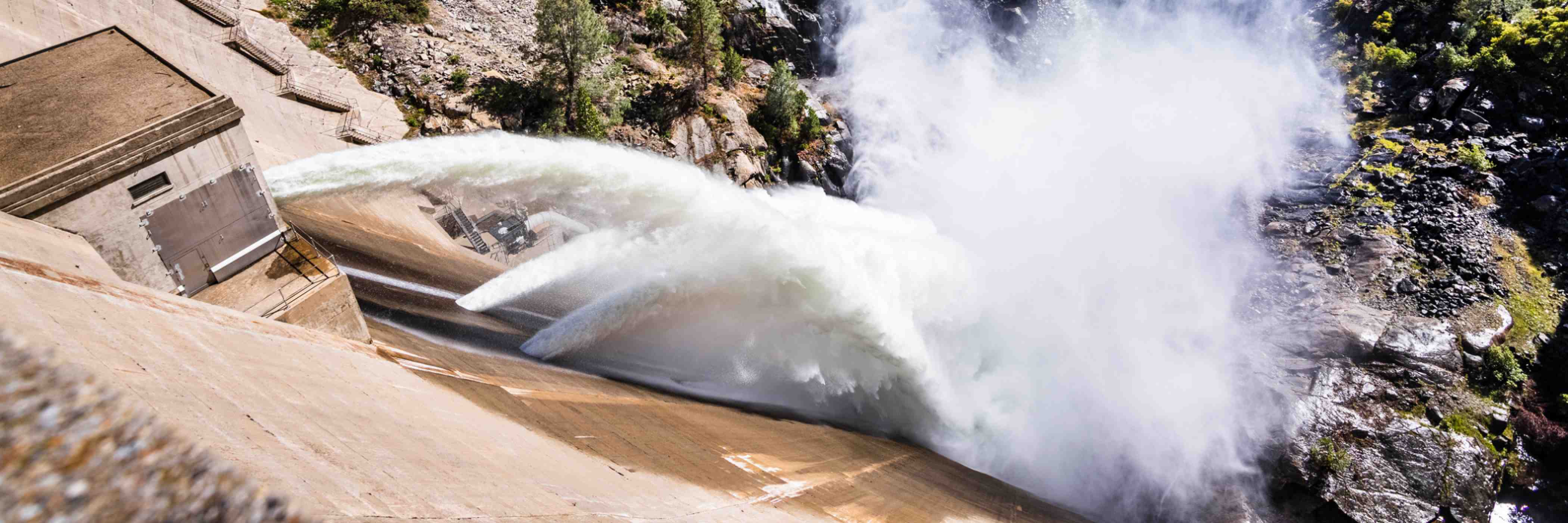



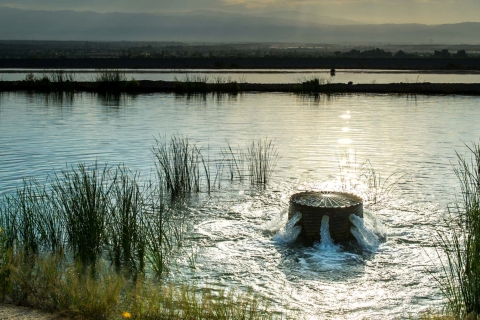
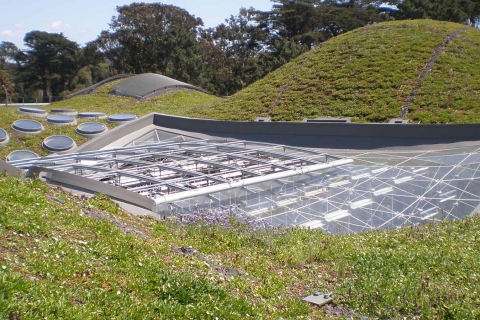


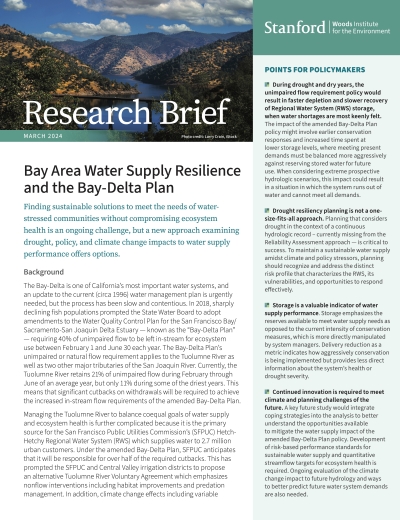
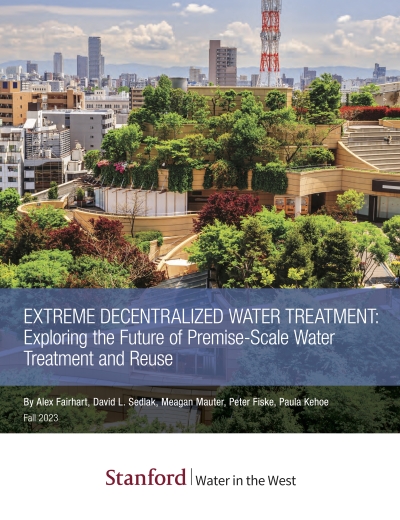
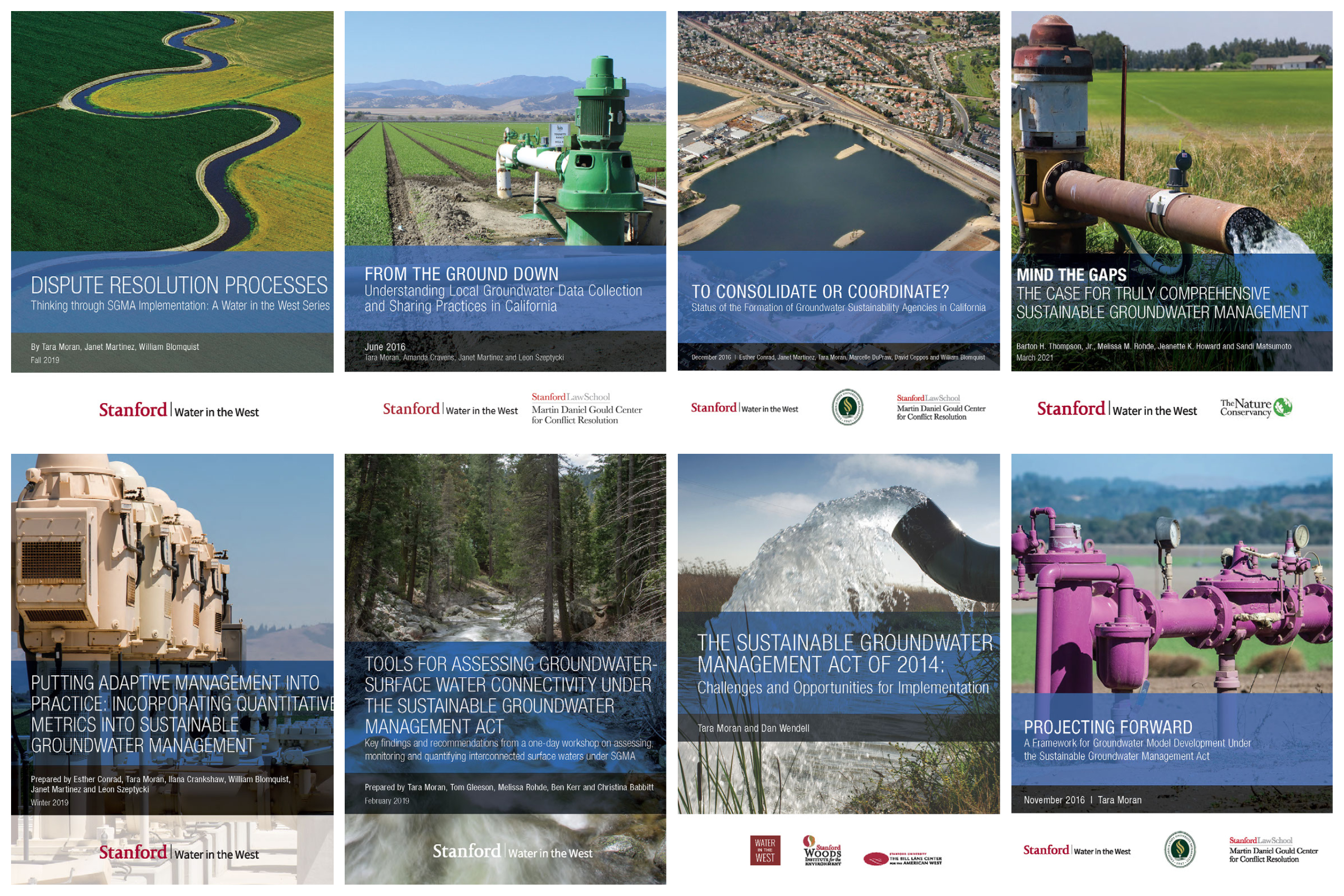
![[Woods Logo]](/sites/default/files/logos/footer-logo-woods.png)
![[Bill Lane Center Logo]](/sites/default/files/logos/footer-logo-billlane.png)